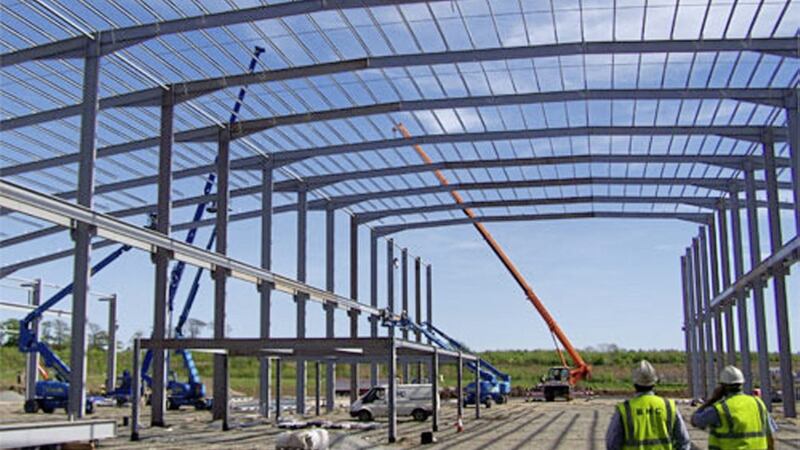WHEN the history books look back, 2021 will go down as a year of challenge - the climate crisis twinned with the ongoing pandemic topped off with the Brexit fallout.
And as we begin 2022, we now need to respond to the climate challenge with the same urgency and dynamic that marked governments’ and society’s response to Covid-19.
Last year did see some progress as ahead of the COP26 event in Glasgow, SSE alongside the NI Chamber of Commerce hosted a climate event in Northern Ireland. We brought together the three most senior political leaders on the island of Ireland under one roof to discuss the most pressing public policy issue of this generation.
An Taoiseach Micheál Martin, First Minister Paul Givan and deputy First Minister Michelle O’Neill joined with business leaders to outline their view on what governments need to do to address the issue of climate and reduce emissions and meet ambitious renewable targets.
COP26 grabbed world headlines in November and brought together political leaders from across the world. Between these two events they demonstrated clearly that climate change is no longer an agenda outlier here and is now a central issue for all our political leaders.
The tone for COP26 was set by the August report from the Intergovernmental Panel on Climate Change (IPCC) which, whilst sobering, also struck an optimistic tone. There is still time and opportunity to limit the worst impacts of climate change – but only if there are immediate, rapid and large-scale reductions in greenhouse gas emissions. That was the message we shared in the run up to COP26 and at the event itself.
Looking to the future, SSE are excited to play our part by providing expertise, commitment and action through the delivery of greener energy. As an energy utility we have a crucial role to play on behalf of our customers and communities and we’re getting on with it.
At this moment we are building more offshore wind than anyone else in the world. This includes constructing the largest offshore wind farm on the planet at Dogger Bank, constructing the deepest offshore wind farm in Europe at Seagreen, as well as developing what will be one of Ireland’s first offshore wind farms at Arklow.
On our own island we have an enviable wind resource that could make a significant contribution to decarbonisation here. The direction of public discourse across Ireland, north and south, and emerging energy policy in both jurisdictions all signal a new era for energy policy.
The Irish government has increased its renewable electricity target to 80 per cent by 2030, underpinned by a 5GW target for offshore wind by 2030. In Northern Ireland, the Department for the Economy has published its new energy strategy entitled “The Path to Net Zero Energy”, which outlines a new target for 70 per cent renewable electricity by 2030.
It is, therefore, clear that we need a massive expansion of onshore and offshore wind across this island. But SSE are also finding clean solutions for those periods when the wind doesn’t blow and the sun doesn’t shine by pioneering new carbon capture and hydrogen technologies. Critically, we are also ensuring our customers have the access they need to low carbon energy solutions from clean energy supply to building retrofits and solar panels.
It is right that we move forward in all these directions because there is no single answer to the climate change challenge. The solution will ultimately be the collective contribution of all of these different innovations.
Inaction risks us getting left behind. The prize for getting this right will be a sustainable energy system that increases the attractiveness of Northern Ireland to international investment while ensuring that as a region we are contributing to the global drive towards zero emissions.
:: Mark Ennis is SSE Ireland chairman









